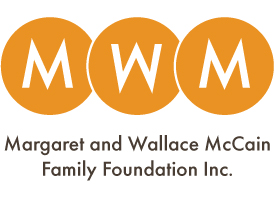
Craig Alexander of the Conference Board of Canada discusses the role of early education in reversing troubling trends in the region.
May 2, 2018 | Halifax, Nova Scotia
 Poverty drags on Atlantic Canada’s economic growth and income inequity also erodes social cohesion and the foundations of democracy. Attracting and retaining people in the short term, and ensuring our future workforce has the necessary skills for secure employment in the longer term, are challenges shared across the Atlantic region.
Poverty drags on Atlantic Canada’s economic growth and income inequity also erodes social cohesion and the foundations of democracy. Attracting and retaining people in the short term, and ensuring our future workforce has the necessary skills for secure employment in the longer term, are challenges shared across the Atlantic region.
High‐quality, early childhood education holds some of the solutions to these pressing problems. Early education is a game-changer, playing multiple roles promoting parents’ labour force participation, women’s equity, immigrant settlement, poverty reduction, and setting the essential foundation for the skills needed in the future.
A recent study, Ready for Life: Socio-Economic Analysis of Early Childhood Education and Care, prepared by Craig Alexander, Senior Vice President and Chief Economist at the Conference Board of Canada reports that:
- Early childhood education reduces income inequality in the short term through increased maternal labour force participation, and in the long term through children’s enhanced skills.
- Duration and quality of early childhood education matters - children benefit from two or three years prior to formal schooling.
- The costs of the program are out weighted by the benefits.
Craig Alexander discusses how the skills needed for a more innovative and productive Atlantic economy also equip individuals to better engage as citizens in a democratic society and what the economic impact might be for the region.
- To access Craig's May 2 presentation please click here
- To access the Atlantic Study please click here
- To access Editorial in the Chronicle Herald, No finer investment than early childhood education
- To access video of the event click here
